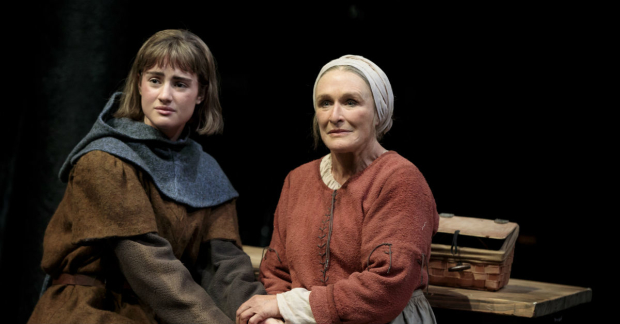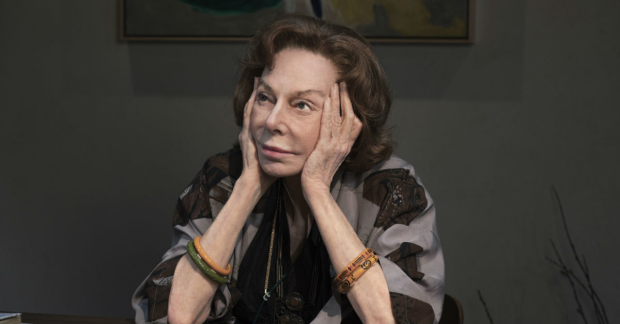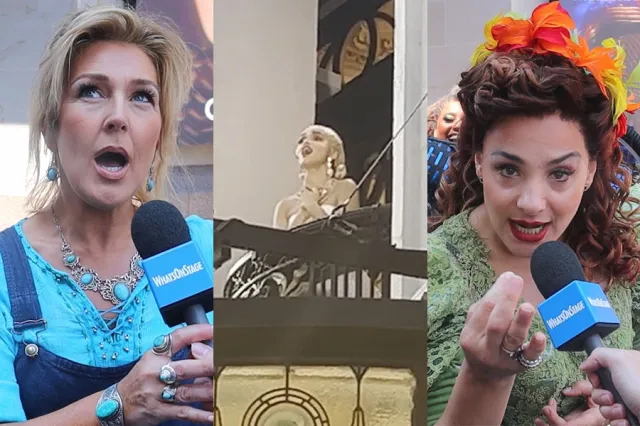Glenn Close and Elaine May's performances in New York prove that experience is a gift
Sarah Crompton reports back from New York, where a host of experienced actresses are showing people just how it’s done

© Joan Marcus
It's a fine time on the New York stage for women with nothing left to prove and everything to say. In two days in the city, I watched 86 year-old Elaine May break hearts as a woman succumbing to dementia in the Broadway debut for Kenneth Lonergan's The Waverly Gallery and Glenn Close, a mere 71, illuminate the action in Jane Anderson's The Mother of the Maid.
Both are performances rich in detail, with the timing and the emotional commitment that springs from ingrained talent and years of experience. They are magical and unforgettable, even if the vehicles that carry them are a little more rickety than the women themselves.
The Waverly Gallery (at the John Golden Theater until January 26), is the more interesting construct. Lonergan's play was first staged off Broadway in 2000 and was inspired by the experience of his own grandmother. That depth of personal engagement and knowledge is revealed in the unbearable clarity with which he charts the decline of Gladys Green (May) into confusion and terror.
It is something to see, a terrific actress at the height of her ability
When we first meet her, in the little art gallery which she still (notionally) runs in Greenwich Village, her incessant chatter, her memory of a life where she was a lawyer and a hostess, her musings about the past, and the constant fiddling with her hearing aid seem merely irritating to her grandson (Lucas Hedges, making an impressive Broadway debut). By the close, the loss of her mind has reduced her to constant talk that makes no sense and her family to the role of reluctant though loving carers.
The play is oddly structured; there's a hopeless artist character who seems to have no purpose (though he is nicely played by Michael Cera) and although Lila Neugebauer's direction is both sensitive and fine-tuned, precisely capturing the rhythms of the dialogue and the tensions of the pain, the action is interrupted by the long scene changes between David Zinn's realistic sets.

© Brigitte Lacombe
There is, however, no mistaking its truth, or its insight. What we realise by the end is that the fracturing of her mind is not just Glady's tragedy, but that of her daughter Ellen, torn between compassion and resentment as she loses her life to coping with her mother. Joan Allen, another wonderful actress endows her with a pent-up fury, as well as gentle, long-suffering love. As her husband Howard, always tactlessly trying to get things straight, David Cromer is also pitch perfect.
But it's May's night. Her improvised comedy performances with Mike Nichols made her the stuff of Broadway legend – a fact recognised by the audience who give her the traditional 'entry round' when she appears – and this return to the stage after a gap of more than 50 years reveals exactly why. Her timing of the tiny phrases with which Gladys attempts to keep conversation going, the little glimpses she offers of the strong woman she once was ("What's wrong with that?" she asks sharply, when she changes her mind about something) and above all her infinitely touching acknowledgement that "I'm all mixed up" add up to a performance of memorable insight, almost unbearable to watch.
What redeems it is Glenn Close's ability to register every fleck of thought and emotion while apparently doing very little
Down at the Public Theater (until December 23) Glenn Close also gives a masterclass in acting in Mother of the Maid, a fairly straight-forward biography of Isabel Arc, Joan's mother. Hampered by its medievalism (the costumes and settings are supposedly 13th century, while the language is an odd blend of oldey-worldy and modern), the play takes a long time to get going and – in its early stages at least – skirts dangerously close to Monty Python territory.
What redeems it and pulls it – movingly – towards a climax which although always historically inevitable seems both shocking and avoidable, is Close's ability to register every fleck of thought and emotion while apparently doing very little. Opposite Grace Van Patten's impressively radiant Joan (who is given too little to do, and so little to say that you begin to long for Bernard Shaw), she moves from incomprehension at her daughter's calling, to despair at where it has taken her, to a stunned pride in all she has achieved. It's a beautifully charted journey, from the slow look she fixes on Joan when she first tells her that God has "told me he wants me to lead an army to drive the English out of France", to her wonder at the extraordinary woman she has raised, to her quiet delight in the luxuries of the French court.
Finally, when both her husband (the excellent Dermot Crowley) and daughter are dead, and she is left alone, she finds righteous anger and extraordinary tenderness, transforming the prose of the words into poetry by the force of her personality and the power of her acting. Her quiet intensity leaves you shaken.
It is something to see, this terrific actress at the height of her ability. With the amazing Cherry Jones currently holding the ring between Daniel Radcliffe and Bobby Cannavale in The Lifespan of A Fact, at Studio 54 and Glenda Jackson on her way back early next year with a new King Lear, directed by Sam Gold, the American stage is suddenly a wonderful place for older actresses to prove that experience is a gift not a handicap. They are women with so much to give, it is a privilege to watch them.


















